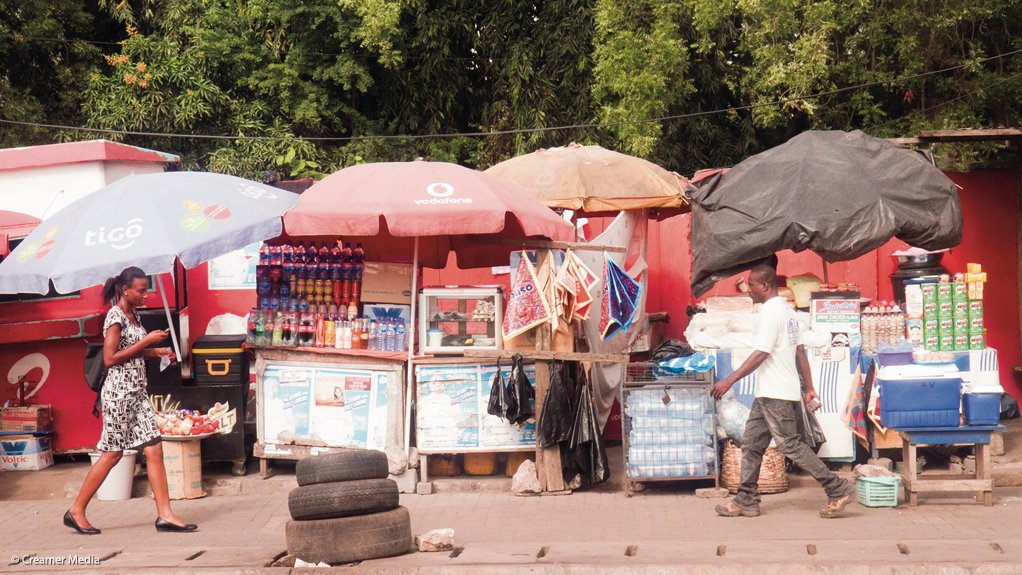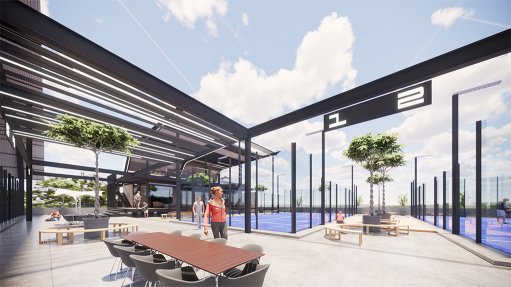African millennium development priorities post-2015 outlined


KEY PRIORITIES The continent must emphasise equity and social inclusion
Photo by Duane Daws
With the United Nations (UN) system and its member States looking at issues regarding development after 2015, globally, regionally and nationally, a number of priorities for Africa have emerged. The year 2015 is significant in that it was meant to be the terminal date for the implementation of the eight Millennium Development Goals (MDGs) agreed by the UN and its member States in 2000. It is now clear that, although great progress has been made, it is possible that not all MDGs will be met by all countries by 2015.
The emerging African development priorities have been outlined by UN Development Programme (UNDP) South Africa office economic adviser Dr Babatunde Omilola. There are seven of them.
The first of these is that “Africa must emphasise inclusive economic growth and structural transformation”, he reported. “Reorientate the development paradigm away from externally driven initiatives towards domestically inspired and funded initiatives grounded in national ownership” was the second.
The third priority was the necessity for Africa to emphasise equity and social inclusion. Listed fourth was the need to give more attention to vulnerable social groups, notably women, children, the youth, the elderly and people with disabilities. Another priority is to note the condition of the various African countries at the start of the MDG process and to recognise the progress they have made in reaching these goals (instead of just highlighting by how much they are falling short of achieving the MDGs).
Listed sixth is the need to integrate various national, regional and global initiatives. These include national and regional consultations coordinated by the UN, the outputs of Africa-wide programmes and the outcomes of the 2012 Rio + 20 UN Conference on Sustainable Development. Last but not least – there is a need to focus on the enablers of development, including the cultivation of local funding.
The post-2015 development agenda does not apply only to Africa. “We need to hear from the global South as well.” The UN contribution to the post-2015 development agenda is based on three elements. These are an inclusive national consultation process; thematic consultations with academia, media, the private sector, employers (not all of whom are in the private sector), trade unions, civil society and decision-makers concerning the current main challenges to development post-2015; and the development of a Web portal and use of social media.
“Why conduct post-2015 development consultations? To build a shared global vision of the ‘future that we want’, to amplify the voices of the poor, and to stimulate an inclusive debate,” explained Omilola. “Different countries are different with different issues and priorities. We have to look at the priorities of different countries. These are the main reasons national consultations are essential.”
The UN has identified 50 countries in which it believes inclusive consultations are essential. Of these, 19 are in Africa, ten in Asia-Pacific, nine in Latin America, six in the Arab world and six in Eastern Europe. These consultations are facilitated by the UN Country Teams in the countries concerned. “But the leadership will have to come from the country.” The consultative process is complemented by a continuing online survey, which was started in 2011.
So far, in Africa, regional consultations have taken place in Accra, Ghana; Dakar, Senegal; and Hammamet, Tunisia and Mombasa, Kenya. No consultations have taken place in South Africa. Instead, there have been talks between the UNDP and the South African government. Pretoria has indicated that it wants to focus on women, the youth and busi-ness as its post-2015 development priorities.
Omilola was speaking at a recent Trade and Industrial Policy Strategies seminar in Pretoria.
The MDGs are: eradicate extreme poverty and hunger; achieve universal primary education; promote gender equality and empower women; reduce child mortality; improve maternal health; combat HIV/Aids, malaria and other diseases; ensure environmental sustainability; and establish a global partnership for development.
Comments
Press Office
Announcements
What's On
Subscribe to improve your user experience...
Option 1 (equivalent of R125 a month):
Receive a weekly copy of Creamer Media's Engineering News & Mining Weekly magazine
(print copy for those in South Africa and e-magazine for those outside of South Africa)
Receive daily email newsletters
Access to full search results
Access archive of magazine back copies
Access to Projects in Progress
Access to ONE Research Report of your choice in PDF format
Option 2 (equivalent of R375 a month):
All benefits from Option 1
PLUS
Access to Creamer Media's Research Channel Africa for ALL Research Reports, in PDF format, on various industrial and mining sectors
including Electricity; Water; Energy Transition; Hydrogen; Roads, Rail and Ports; Coal; Gold; Platinum; Battery Metals; etc.
Already a subscriber?
Forgotten your password?
Receive weekly copy of Creamer Media's Engineering News & Mining Weekly magazine (print copy for those in South Africa and e-magazine for those outside of South Africa)
➕
Recieve daily email newsletters
➕
Access to full search results
➕
Access archive of magazine back copies
➕
Access to Projects in Progress
➕
Access to ONE Research Report of your choice in PDF format
RESEARCH CHANNEL AFRICA
R4500 (equivalent of R375 a month)
SUBSCRIBEAll benefits from Option 1
➕
Access to Creamer Media's Research Channel Africa for ALL Research Reports on various industrial and mining sectors, in PDF format, including on:
Electricity
➕
Water
➕
Energy Transition
➕
Hydrogen
➕
Roads, Rail and Ports
➕
Coal
➕
Gold
➕
Platinum
➕
Battery Metals
➕
etc.
Receive all benefits from Option 1 or Option 2 delivered to numerous people at your company
➕
Multiple User names and Passwords for simultaneous log-ins
➕
Intranet integration access to all in your organisation



















